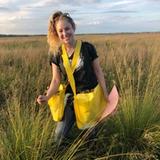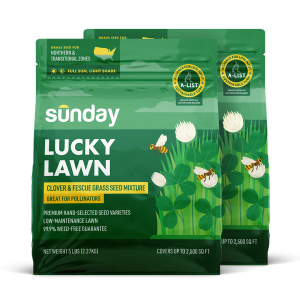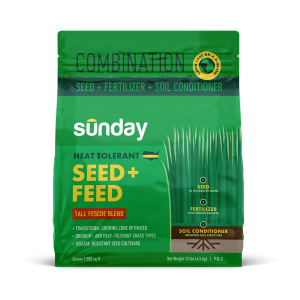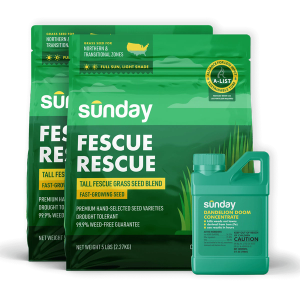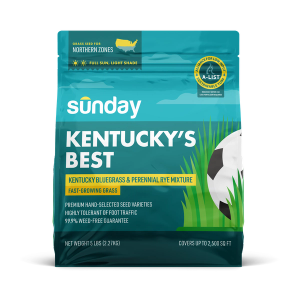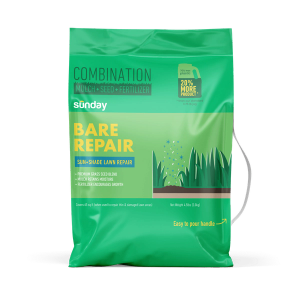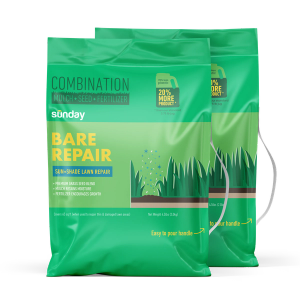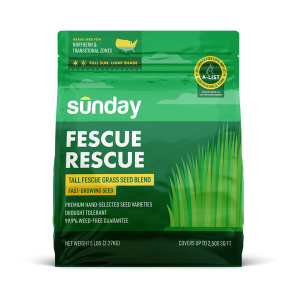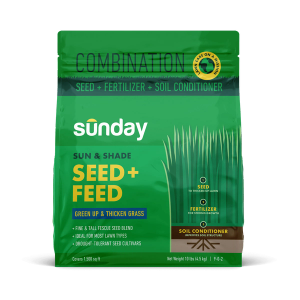What are Sunday nutrients?
Sunday nutrients are intended to maintain lawns in "good shape." Even if your lawn does need some work, it’s quite likely your lawn is in good shape if it’s growing mostly grass each year. A Sunday lawn isn’t intended to be a perfectly green, weed-free environment—it’s intended to be a more sustainable lawn that is less reliant on inputs.
Sunday Tip:
Nutrients, pesticides, water, and mowing (think emissions) can all be forms of input within your lawn ecosystem. No matter the form of input, Sunday is striving to limit all inputs to a minimum.
How do Sunday nutrients work?
Sunday is a low-nutrient program interpreted by MLSN, or minimum levels of sustainable nutrition. This means the program is designed to apply the minimum amount of nutrients recommended to support grass health, instead of becoming reliant on nutrients. Additionally, the soil test that accompanies the lawn plan will identify a soil nutrient deficiency and correct it based on its MLSN interpretation.
Will Sunday work for my grass type?
Sunday nutrients are not specific to grass type—meaning most grass types work with Sunday provided you correctly follow instructions and application. In fact, we are confident in saying Sunday works on all grass types typically found in residential lawns with the exception of 100% perennial ryegrass lawn, colonial bentgrass, and creeping bentgrass. Perennial ryegrass mixed with other grasses is okay!
Types of grass or lawn cover Sunday works with
Essentially just about every turfgrass type found in typical residential lawns will work with Sunday products. To make this easier, we’ve devised a warm-season and cool-season grasses checklist to make sure you know Sunday is compatible with your grass type.
Cool-season
- Velvet and Idaho bentgrasses
- Fine fescue
- Tall fescue
- Kentucky bluegrass
- Perennial ryegrass
Warm-season
- Bermudagrass
- Buffalograss
- Centipedegrass
- Kikuyugrass
- St. Augustinegrass
- Zoysiagrass
- Paspalum grass
- Bahiagrass
Lawn alternatives
- Flowering lawns (examples: clover, kurapia)
Sunday Tip:
If you are applying Sunday to a 3rd party no-mow grass variety or a perennial flowering lawn alternative, check what the label says before applying. It’s possible you may want to avoid applying Sunday, especially if plants are flowering, to protect pollinators and other beneficial lawn critters.
Why doesn’t Sunday work for certain lawns?
Perennial ryegrass tends to require high-input fertilizers, whereas the Sunday program is intended to apply moderate levels of nutrients to your lawn. Additionally, grasses like colonial bentgrass and creeping bentgrass are typically only grown on golf courses and tennis courts due to their high maintenance requirements. Only the most dedicated homeowners attempt at having creeping or colonial bentgrass lawns.
Other reasons Sunday may not work
- Bare ground. Sunday nutrients alone won’t grow grass—nutrients need grass cover to work and should never be applied to bare soil. Plant grass or patch bare spots first, wait for the grass to germinate, then apply nutrients when it’s established (at least 60% groundcover).
- Dormant or browned heat-stressed grass. Grass needs to be actively growing in order for Sunday nutrients to work correctly. If you apply during periods of dormancy or stress you can damage your lawn, and potentially pollute the environment from nutrient loss (fertilizer vaporizing due to heat or leaching into the environment due to inability to absorb product).
- Bigger rain events. Avoid applying Sunday nutrients when it is raining or before a large rain event. The nutrients need to dry on the grass blades in order to activate the deep greening, and be absorbed by the plant through the soil.
- Pouches applied without water. Direct application of just fertilizer in the pouch will burn and damage your lawn. Always follow proper application instructions.
Cited sources
A Review of Turfgrass Fertilizer Management Practices: Implications for Urban Water Quality. American Society for Horticultural Science.
Fertilizing lawns. University of Minnesota Extension.
Minimum levels for sustainable nutrition (MLSN). Pace Turf LLC and Asian Turfgrass Center.


